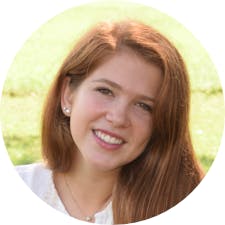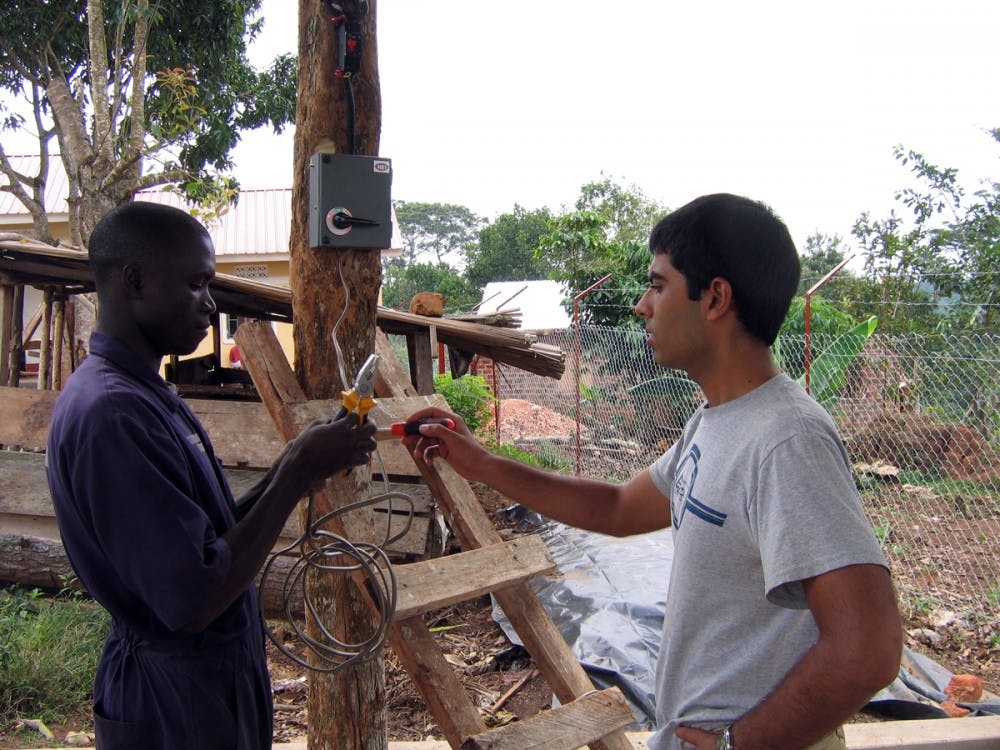Looking forward to summer 2020 already, DukeEngage has unveiled seven new project sites—one domestic and the remaining international—while several sites have been eliminated for the coming year.
Students have mixed reviews of their DukeEngage programs, but Suzanne Shanahan, Nannerl O. Keohane director of the Kenan Institute for Ethics, says most changes for 2020 were not made in response to student feedback. Earlier this year, DukeEngage became a program at the Kenan Institute for Ethics after the inaugural director of DukeEngage, Eric Mlyn, stepped down.
DukeEngage has added—and eliminated—a handful of new destinations to its program offerings for 2020, and it has debuted Duke(Re)Engage: a research funding opportunity for DukeEngage alumni.
New program offerings include the Bahamas, Bolivia, Brazil and Paraguay, Colombia, Indonesia, Kumasi—a city in Ghana—and the Duke Marine Lab. The programs in Seattle, Cape Verde, Kauai, Portland, Puerto Rico and one of the two programs in Uganda will not run in 2020.
Several international programs—with sites in Bolivia, Chile and Lebanon—currently do not have applications open, as Duke’s Global Travel Advisory Committee has recommended that these programs be placed on the Restricted Regions list, according to the DukeEngage website.
Furthermore, the Durham program, which used to work in Durham, N.C., as well as its “sister city” of Durham, England, has been modified and will now stay in Durham, N.C., for the entirety of the program.
Shanahan wrote in an email to The Chronicle that “this year’s changes are pretty typical. Programs vary annually depending on program director interests and availability.”
The Chronicle asked several students about their DukeEngage experiences to try to determine whether student satisfaction levels could have influenced decisions as to which programs were kept and which were altered or removed.
Sophomore Alex Chao participated in the DukeEngage-Durham program this past summer. When he participated, the themes of the program were community development and outreach, economic and workforce development and social enterprise and public policy. Their work focused on community-based economic development, and participants spent six weeks in Durham, N.C. and four weeks in Durham, England.
Chao was disappointed with his internship experiences in both locations. In Durham, N.C., he worked at the Scrap Exchange, which he described as a creative reuse center that is supposed to funnel resources back into the community.
“I don’t really think they had a necessary place for us; it didn’t really feel like an internship,” he said, reflecting that he spent a lot of time sorting materials, including “hundreds or thousands of screws.”
In Durham, England, Chao interned at an organization called Changing Lives, where he spent time in their shelter for homeless men. Chao said that the Changing Lives employee who had been slated to supervise DukeEngage volunteers left the organization several weeks before the students arrived, and the remaining employees “really just did not know what to do with [them].”
Chao felt that combining the two locations into one program made very little sense, especially as the population of Durham, England, is fairly homogeneous and well-to-do, so comparisons weren’t terribly useful.
“Going to the United Kingdom was a complete waste of time,” Chao said. “It was just a marketing ploy.”
One of the most critical sources of Chao’s dissatisfaction was the lack of programming and conversation facilitated by the director.
“It wasn’t really an immersive experience at all,” he said. “We didn’t really do anything exciting. We didn’t really have any critical conversations about why were there.”
Chao added that he does not know if student feedback influenced DukeEngage administrators’ decision to alter the program, but he did “leave a very brutally honest review.”
“It is DukeEngage policy to spend 8 weeks in immersive civic engagement in a single community,” Shanahan wrote when asked why the Durham program was altered. “With so many important opportunities for collaboration in Durham, NC, it seemed important to focus there and there alone.”
Shannahan also wrote that while DukeEngage takes “all stakeholder feedback super seriously, the changes this year were not based on student feedback.”
Sophomore Catherine McMillan, who participated in the DukeEngage-Boston program, had a different experience compared to Chao’s. The theme of the program in Massachusetts is “addressing social inequities by advocating for children and families.”
McMillan spent eight weeks as an intern for the Boston-based chapter of Mentor, a nonprofit with a mission “to fuel the quality and quantity of mentoring relationships for America's young people and to close the mentoring gap.” She described her experience in Boston as purposeful and powerful, which she attributes largely to the program having a strong leadership. The faculty director fostered a sense of community and brought us together, she explained.
McMillan said that the discussions facilitated by the director were an essential part of the program. The topics of these discussions included “working with versus working for,” “avoiding the savior complex” and establishing the differences between positive impact on the volunteers and positive community impact.
“By the nature of the newness of the international programs, they can be more problematic with regards to voluntourism,” McMillan said.
DukeEngage strives to keep 35% of its participants doing domestic service as opposed to international programs. Shanahan wrote that the changes to programming for 2020 are not expected to change this percentage.
Both Chao and McMillan expressed dissatisfaction with DukeEngage Academy, the two-day preparation program that has been mandatory for all DukeEngage participants. Chao said that he “personally didn’t get anything out of it” and commented that “the way it’s framed, everyone kind of goes into it thinking it’s going to be a waste of time.” McMillan, on the other hand, believes that the two-day session wasn’t sufficient.
Shanahan wrote that, while the programming for the Academy changes year to year, summer 2020 will see the addition of “a post-summer workshop to directly address reentry challenges and opportunities.”
Duke (Re)Engage is also new for 2020. The program awards DukeEngage alumni funding to continue project work in their previous DukeEngage site, work with a different organization in that location or work with a similar theme in a new location. Successful applicants will receive up to $5,000 for domestic work or up to $6,000 for international work. (Re)Engage projects are expected to be “be at least eight continuous weeks in length.”
Although DukeEngage location changes were not made in response to student feedback, “(Re)Engage was a response to stakeholder suggestions,” Shanahan said.
Correction: Chao said that he sorted "hundreds or thousands of screws," not "hundreds of thousands of screws." The Chronicle regrets the error.
Get The Chronicle straight to your inbox
Signup for our weekly newsletter. Cancel at any time.

Anna Zolotor is a Trinity senior and recruitment chair for The Chronicle's 118th volume. She was previously news editor for Volume 117.

